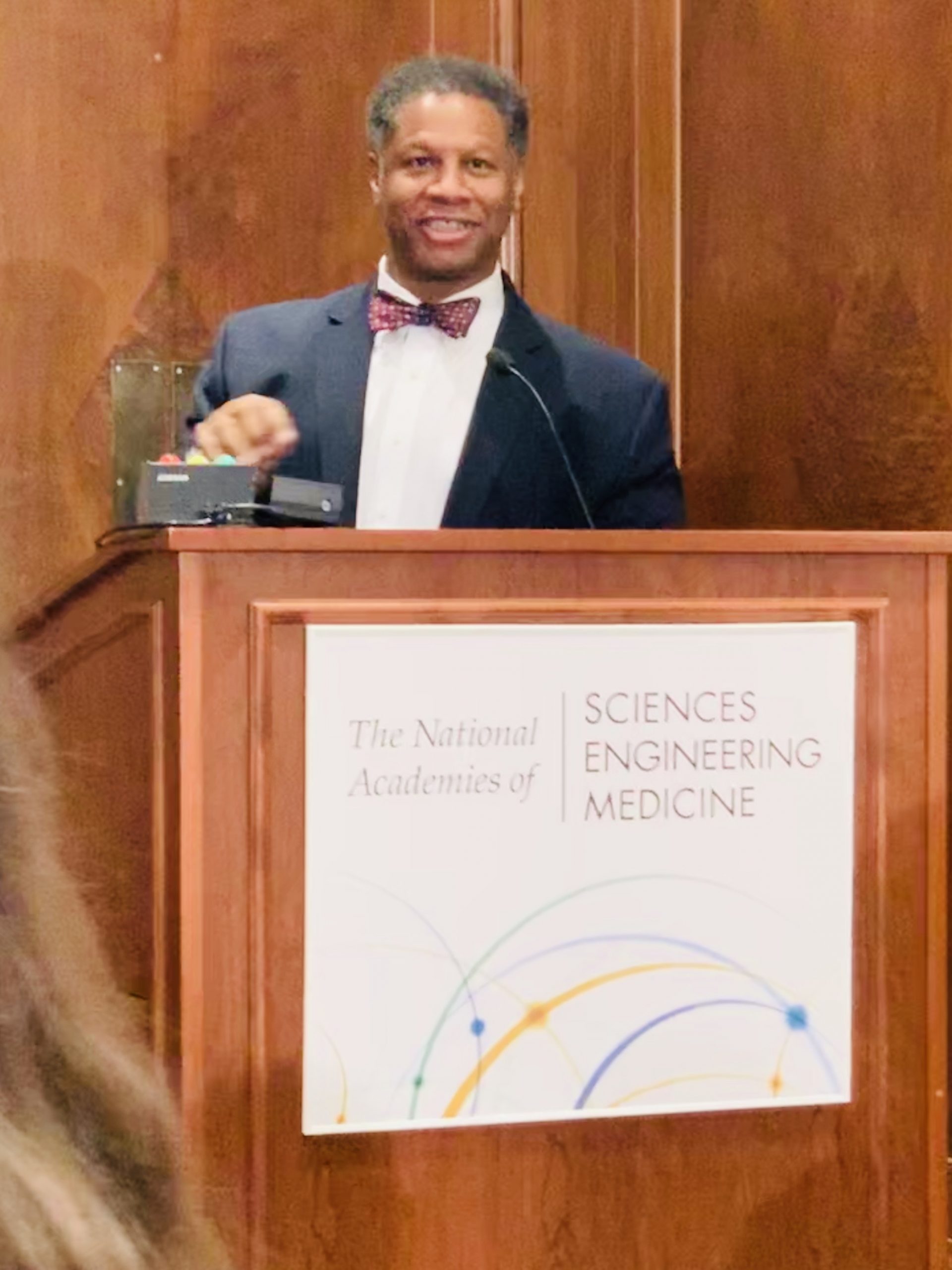
Big data is being used in countless ways today: Dating, shopping, and regulating energy consumption, just to name a few ways. Now add cancer research.
The National Cancer Policy Forum recently held a workshop for leading health care professionals to exchange ideas about how big data can be applied to address the social determinants in oncology and develop opportunities to improve health and reduce disparities. Robert Winn, MD, director of the University of Illinois Cancer Center, chaired the planning committee for the meeting held at The National Academies of Sciences, Engineering and Medicine in Washington. He also provided welcome remarks to begin the event.
“The collection and analysis of big data is anticipated to transform the field of cancer research and improve cancer care,” Winn said. “Innovations in analytic methods, coupled with large-scale efforts to collect data, are advancing precision medicine initiatives and facilitating research on factors that influence cancer incidence and outcomes.”
Analyses of big data has the potential to explain ways in which the social determinants of health contribute to cancer incidence and outcomes, and may also identify promising avenues for intervention, Winn said. However, bias – due to the lack of minority and vulnerable populations in big datasets – threatens equitable progress in cancer research and care.
The workshop also explored novel data sources and methodologies to assess social causes of health, along with strategies for collaboration and data sharing to ensure equity and representativeness in research, Winn said.
A host of topics were addressed at the workshop, among them advancing health equity and fairness in big data applications in oncology; citizen science and digital health data; data security and patient privacy issues with the use of big data; and opportunities to leverage and link cancer registry data with other sources.
The UI Cancer Center was well-represented at the gathering, as several members and administrative staff presented their work in poster form. They were:
Paul Grippo, PhD, Associate Director, Cancer Research Career Enhancement and Education at the UI Cancer Center and associate professor of gastroenterology and hepatology: “Integrating neighborhood, social, lifestyle, biological, and microbial data to understand racial disparities in colorectal cancer”
Alpana Kaushiva, MHS, PhD candidate in epidemiology and biostatistics: “Disparities in toxic heavy metal burden and breast cancer risk: Findings from the Metropolitan Chicago Breast Cancer Registry”
Molly Scannell Bryan, MPP, PhD, UI Cancer Center member, research assistant professor, Institute for Minority Health Research: “The intersection of structural violence, environmental inequalities and family history: Study design and methodology”
Kathy Tossas-Milligan, PhD, Office of Catchment Area Research and Data Science (CARDS), UI Cancer Center: “Hidden figures: An example of using machine learning to prioritize cervical cancer screening outreach”
